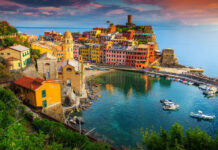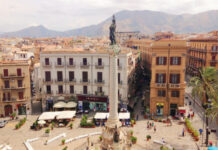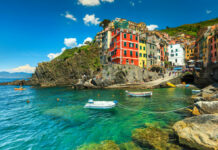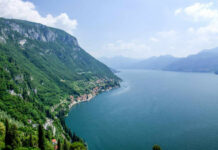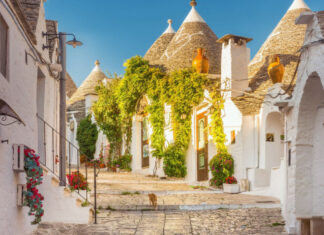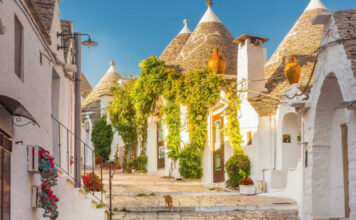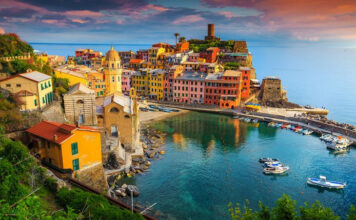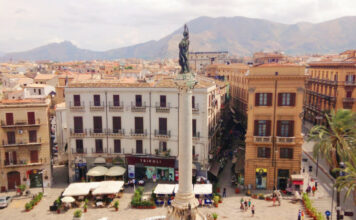Skipping Regional Specialties in Food
 Italian food varies widely from region to region, yet many travelers stick to generic dishes they’re familiar with, like spaghetti Bolognese or pizza. Each region has its own specialties, which reflect local ingredients and traditions. For instance, try risotto in Milan, pasta alla Norma in Sicily, and ribollita soup in Tuscany. Embrace the diversity of Italian cuisine by sampling dishes unique to each area—it’s one of the best ways to experience Italy’s culinary culture!
Italian food varies widely from region to region, yet many travelers stick to generic dishes they’re familiar with, like spaghetti Bolognese or pizza. Each region has its own specialties, which reflect local ingredients and traditions. For instance, try risotto in Milan, pasta alla Norma in Sicily, and ribollita soup in Tuscany. Embrace the diversity of Italian cuisine by sampling dishes unique to each area—it’s one of the best ways to experience Italy’s culinary culture!
Underestimating the Importance of Reservation for Meals
 In Italy, dining is an event, and reservations are common, especially at popular spots. Many travelers assume they can simply walk in, only to find that the restaurant is fully booked. Italians typically reserve tables for both lunch and dinner, so it’s wise to plan ahead. Make reservations for popular restaurants at least a day in advance, and avoid disappointment by securing your table early.
In Italy, dining is an event, and reservations are common, especially at popular spots. Many travelers assume they can simply walk in, only to find that the restaurant is fully booked. Italians typically reserve tables for both lunch and dinner, so it’s wise to plan ahead. Make reservations for popular restaurants at least a day in advance, and avoid disappointment by securing your table early.
Overpacking for Public Transport and Cobblestone Streets
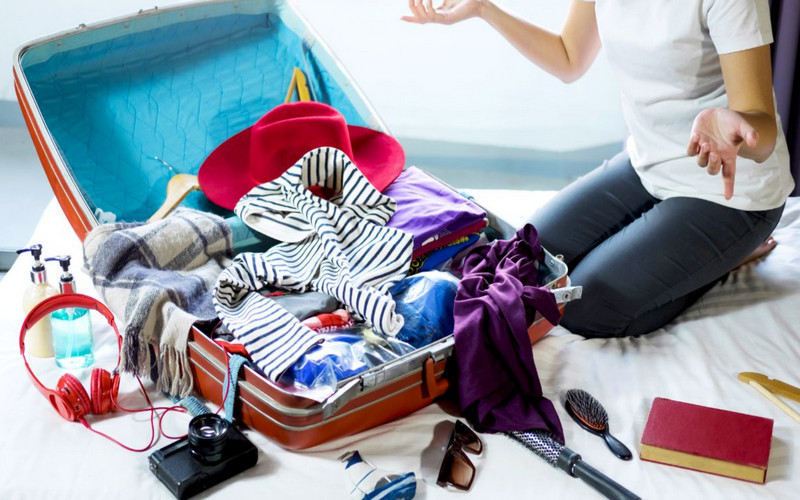 Italy’s charming streets are often made of cobblestones, which can be tricky to navigate with large or heavy luggage. Public transportation also has limited space, and trains and buses can be crowded. To save yourself the hassle, pack light and bring a small, sturdy suitcase. You’ll have an easier time getting around and will be able to explore the streets without worrying about hauling heavy bags.
Italy’s charming streets are often made of cobblestones, which can be tricky to navigate with large or heavy luggage. Public transportation also has limited space, and trains and buses can be crowded. To save yourself the hassle, pack light and bring a small, sturdy suitcase. You’ll have an easier time getting around and will be able to explore the streets without worrying about hauling heavy bags.
Neglecting to Validate Train Tickets
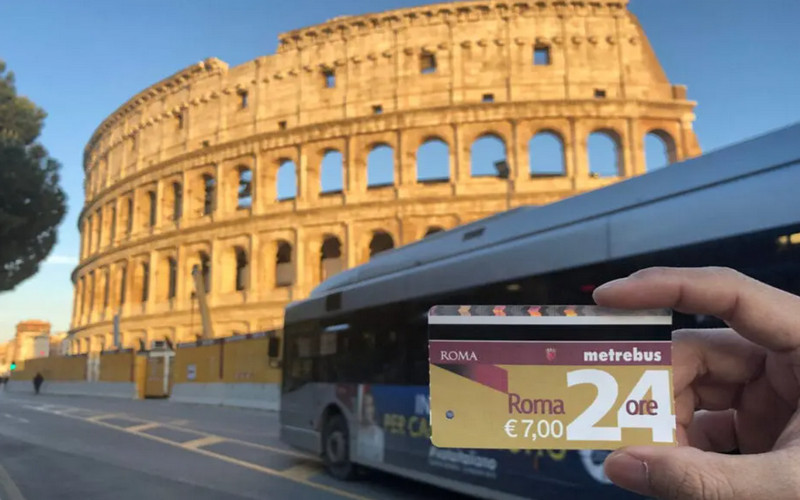 In Italy, you’ll need to validate certain train tickets before boarding, especially for regional and intercity routes. Many travelers overlook this step and end up with fines. Before you board a train, look for the yellow or green validation machines on the platform. Insert your ticket to stamp it with the date and time, showing that it’s been validated. This small step can save you from a potentially hefty fine.
In Italy, you’ll need to validate certain train tickets before boarding, especially for regional and intercity routes. Many travelers overlook this step and end up with fines. Before you board a train, look for the yellow or green validation machines on the platform. Insert your ticket to stamp it with the date and time, showing that it’s been validated. This small step can save you from a potentially hefty fine.
Expecting Quick Service in Restaurants
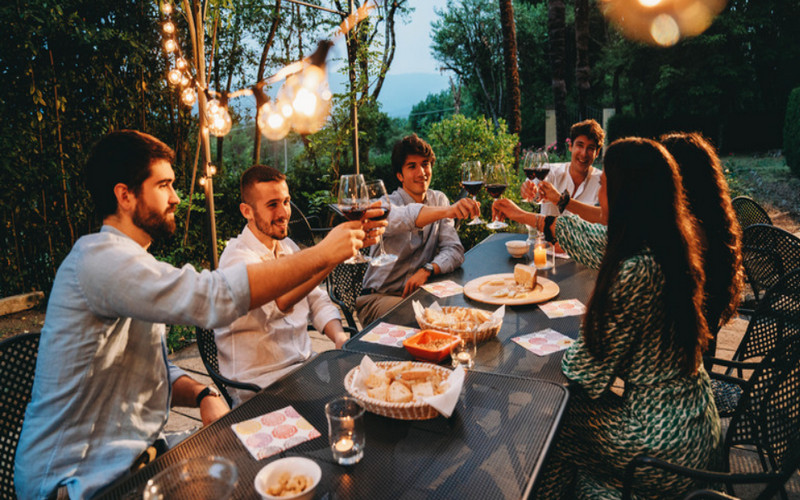 In Italy, meals are meant to be savored, and dining is a leisurely experience. Italian servers won’t rush you through your meal or bring the check without being asked, which can confuse travelers used to faster service. Don’t interpret this as inattentiveness; instead, embrace the relaxed pace and enjoy the experience. When you’re ready to pay, simply ask for the bill (il conto, per favore), and the server will bring it.
In Italy, meals are meant to be savored, and dining is a leisurely experience. Italian servers won’t rush you through your meal or bring the check without being asked, which can confuse travelers used to faster service. Don’t interpret this as inattentiveness; instead, embrace the relaxed pace and enjoy the experience. When you’re ready to pay, simply ask for the bill (il conto, per favore), and the server will bring it.
Dressing Inappropriately for Churches
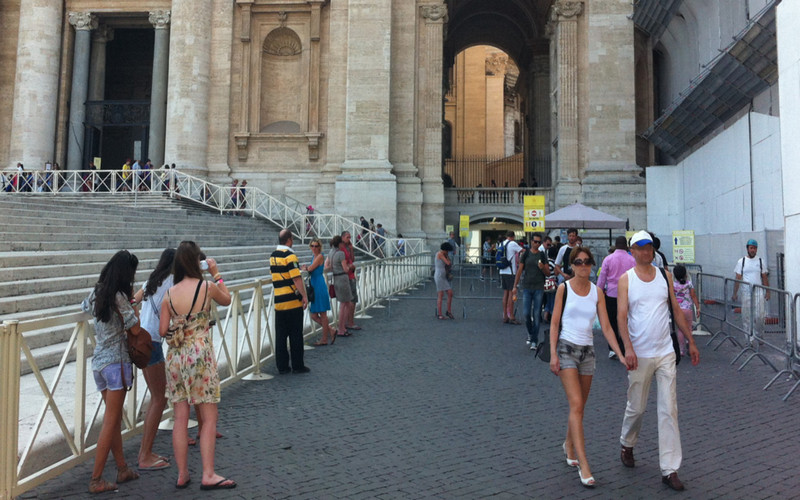 Italy is home to beautiful churches and basilicas that attract tourists worldwide. However, many of these places have strict dress codes. Tourists in shorts, sleeveless tops, or short skirts may be turned away at the entrance. To show respect and avoid issues, dress modestly when visiting churches—cover your shoulders and knees. If you’re exploring in the summer, consider bringing a scarf or shawl to cover up when needed.
Italy is home to beautiful churches and basilicas that attract tourists worldwide. However, many of these places have strict dress codes. Tourists in shorts, sleeveless tops, or short skirts may be turned away at the entrance. To show respect and avoid issues, dress modestly when visiting churches—cover your shoulders and knees. If you’re exploring in the summer, consider bringing a scarf or shawl to cover up when needed.
Tipping Like in the United States
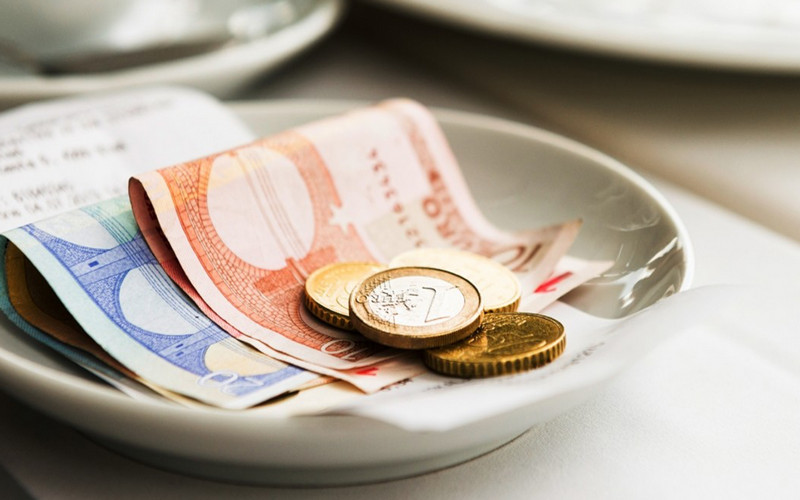 Tipping in Italy isn’t as customary as it is in countries like the United States, where tips can be as high as 20%. In Italy, tipping is generally reserved for exceptional service and is usually a small gesture. Most restaurants already include a “coperto” (cover charge) or service fee in the bill. Leaving a few extra euros on the table is appreciated but not required. Avoid tipping too heavily, as it’s not expected and can be seen as excessive.
Tipping in Italy isn’t as customary as it is in countries like the United States, where tips can be as high as 20%. In Italy, tipping is generally reserved for exceptional service and is usually a small gesture. Most restaurants already include a “coperto” (cover charge) or service fee in the bill. Leaving a few extra euros on the table is appreciated but not required. Avoid tipping too heavily, as it’s not expected and can be seen as excessive.
Overpacking the Itinerary with Too Many Destinations
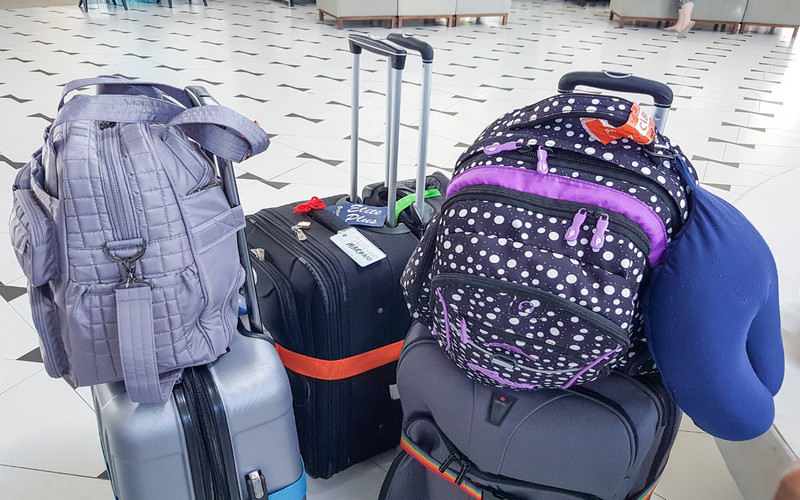 Italy has so much to offer that it can be tempting to see it all in one trip. However, overpacking your itinerary with multiple destinations can make your vacation feel rushed and leave you exhausted. Italy’s cities and towns are best enjoyed slowly, allowing time for leisurely meals, unplanned detours, and relaxation. Instead of trying to cover the entire country in one trip, focus on a few regions and savor the experience.
Italy has so much to offer that it can be tempting to see it all in one trip. However, overpacking your itinerary with multiple destinations can make your vacation feel rushed and leave you exhausted. Italy’s cities and towns are best enjoyed slowly, allowing time for leisurely meals, unplanned detours, and relaxation. Instead of trying to cover the entire country in one trip, focus on a few regions and savor the experience.
Relying Only on English
 While many Italians, especially in tourist areas, speak some English, assuming everyone will speak it can lead to miscommunication. Italians appreciate when travelers make an effort with basic phrases like “grazie” (thank you), “per favore” (please), and “buongiorno” (good morning). Learning a few simple Italian phrases shows respect for the local culture and can lead to a more welcoming experience.
While many Italians, especially in tourist areas, speak some English, assuming everyone will speak it can lead to miscommunication. Italians appreciate when travelers make an effort with basic phrases like “grazie” (thank you), “per favore” (please), and “buongiorno” (good morning). Learning a few simple Italian phrases shows respect for the local culture and can lead to a more welcoming experience.
Ignoring the Riposo (Afternoon Break)
 In many parts of Italy, particularly small towns, there is a daily riposo, or afternoon break, during which shops and businesses close for a few hours, usually from around 1 pm to 4 pm. Travelers often plan shopping or sightseeing during this time, only to find that businesses are closed. Embrace the Italian lifestyle by planning to relax during these hours, perhaps with a leisurely lunch or an espresso, and enjoy the slower pace of life.
In many parts of Italy, particularly small towns, there is a daily riposo, or afternoon break, during which shops and businesses close for a few hours, usually from around 1 pm to 4 pm. Travelers often plan shopping or sightseeing during this time, only to find that businesses are closed. Embrace the Italian lifestyle by planning to relax during these hours, perhaps with a leisurely lunch or an espresso, and enjoy the slower pace of life.

